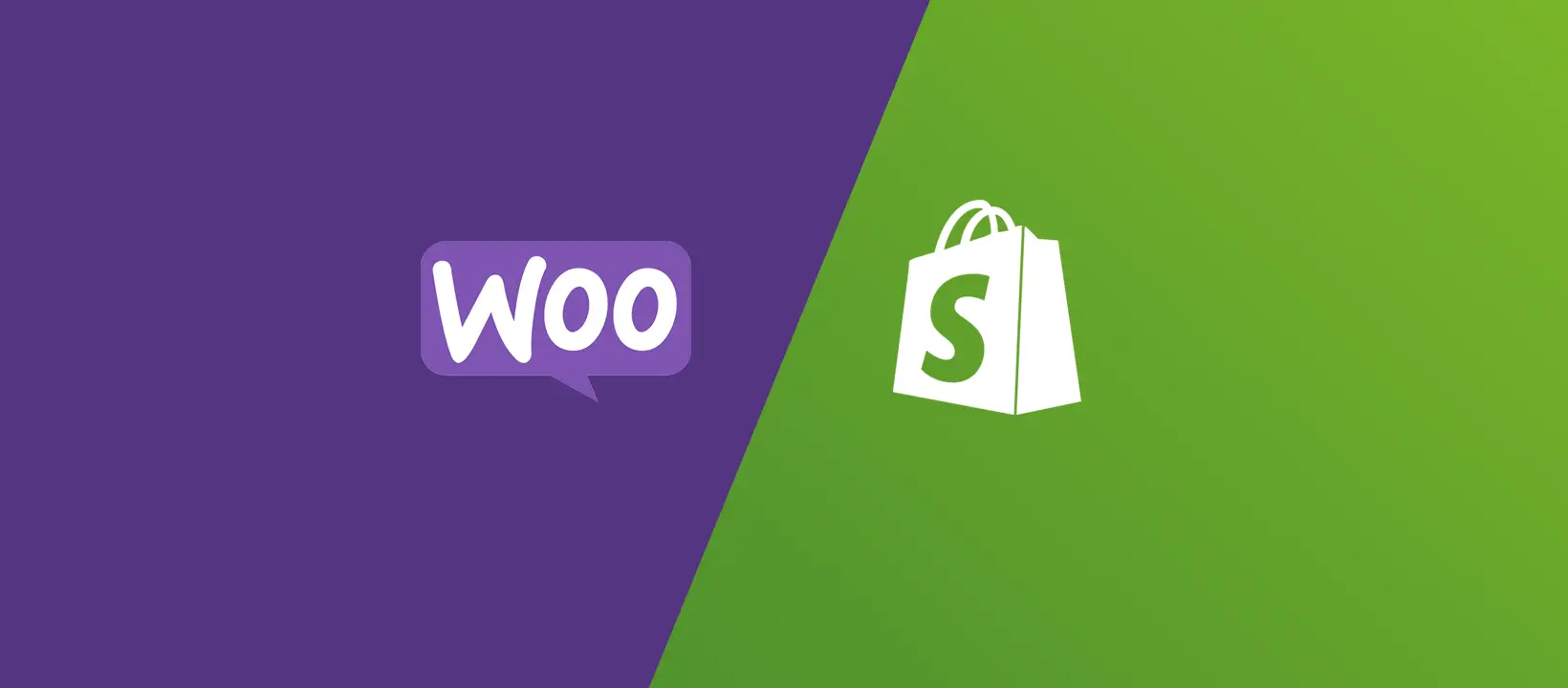WooCommerce vs. Shopify: Choosing the Right E-Commerce Platform
When it comes to setting up an online store, WooCommerce and Shopify are two of the most popular choices for businesses of all sizes. While both platforms offer robust features and ease of use, each has its own set of pros and cons that cater to different business needs.
We offer both e-commerce solutions to our clients but let’s dive into the comparison to help you make an informed decision on driving customers to fill up those baskets!

WooCommerce
Pros:
- Flexibility and Customisation: WooCommerce, being a WordPress plugin, offers unparalleled flexibility and customisation options. Businesses have full control over their website’s design, functionality, and content, making it ideal for those with specific branding and design requirements.
- Cost-Effective: WooCommerce is open-source and free to use, making it a budget-friendly option for startups and small businesses. While there may be costs associated with hosting, themes, and extensions, WooCommerce generally offers more affordability and scalability in the long run.
- Vast Ecosystem: With a vast ecosystem of themes, plugins, and extensions, WooCommerce allows businesses to extend the functionality of their online store according to their needs. From payment gateways to shipping options and marketing tools, there’s a wide range of options available to tailor the store to specific requirements. Check out our article on the benefits of WooCommerce for some of our staff picks on plugins.
Cons:
- Technical Expertise Required: While WooCommerce offers flexibility, setting up and managing a WooCommerce store may require some technical expertise, especially for those new to WordPress and e-commerce.
- Hosting Requirements: As WooCommerce is a self-hosted solution, businesses are responsible for managing their own hosting, security, and performance optimisations. This may require additional time and resources compared to hosted solutions like Shopify.
Shopify
Pros:
- Ease of Use: Shopify is renowned for its user-friendly interface and intuitive setup process. With a wide range of professionally designed templates and a drag-and-drop editor, businesses can quickly create and launch their online store without any coding knowledge.
- Hosted Solution: Shopify is a fully hosted solution, meaning businesses don’t have to worry about managing hosting, security, or performance optimisations. This makes it an ideal choice for beginners or those looking for a hassle-free e-commerce solution.
- Integrated Payment Gateway: Shopify offers its own payment gateway, Shopify Payments, which eliminates the need for third-party payment processors. This streamlines the payment process and ensures a seamless checkout experience for customers.
Cons:
- Cost: While Shopify offers a range of pricing plans, it can be more expensive compared to WooCommerce, especially for businesses with larger product catalogs or higher sales volumes. Additionally, transaction fees may apply if businesses opt for third-party payment gateways.
- Limited Customisation: While Shopify offers a variety of themes and customisation options, it may not offer the same level of flexibility as WooCommerce. Businesses may encounter limitations when trying to implement specific design or functionality requirements. It is built in a language called Liquid and there aren’t as many developers out there compared to PHP which is used for WooCommerce and WordPress. Shopify is also primarily a store, so while the structure of the product pages are great, you may find adding other content areas more limited and the admin more cumbersome compared to the flexibility and intuitiveness of WordPress.
Both WooCommerce and Shopify offer powerful e-commerce solutions with their own set of advantages and disadvantages and differ significantly in their approach and features.
Businesses should carefully consider their specific needs, budget, technical expertise, and long-term growth plans when choosing between the two platforms. Whether you prioritise flexibility and customisation (WooCommerce) or ease of use and scalability (Shopify), selecting the right platform is essential for building a successful online store.
If you’re ready to build a WooCommerce website, set up a Shopify store or simply want more advice, get in touch and see how we can help!











